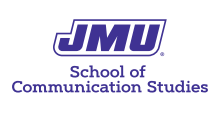Abstract
In this article, I think through the case studies of intercollegiate policy debate and the Harvard Indian College in order to illuminate how the presence of Native thought in academic settings so frequently depends upon a disavowal of genocide, accumulation, and fungibility, even and especially as Native scholars posit sovereignty and vitality as authentic grammars of Native existence. I think with an elegy written in 1678 by a student at the Indian College named Eleazar, as well as the colloquial history of Native debate, in order to parallel how both render unapproachable the ensemble of ethical dilemmas presented by the grammar of genocide that position Native people in proximity to death and those presented by slavery’s grammars of accumulation and fungibility. I suggest that in order to theorize Native/Black entanglements, in and outside debate, one must think this concessionary ground through terms authorized by accumulation, fungibility, and genocide in order to, in Frank. B. Wilderson, III’s terms, “pose the question” rather than restage the concession to the liberal world of the Settler/Master.
Recommended Citation
Brough, Taylor
(2023)
"Eleazar, Native Debate, and The Stakes of Concession,"
Contemporary Argumentation and Debate: Vol. 38, Article 6.
Available at:
https://commons.lib.jmu.edu/cad/vol38/iss1/6



